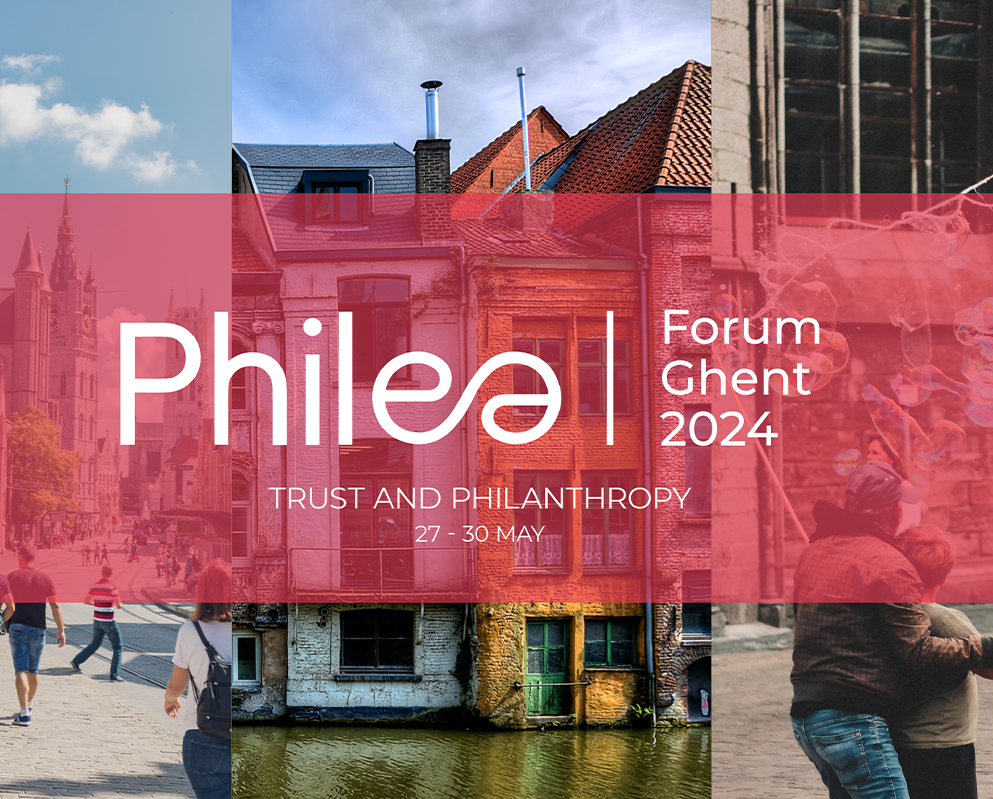Trust, philanthropy and moral ambition – 3rd edition of Philea Forum closes in Ghent

29 May, 2024 - Today marked the end of the 2024 Philea Forum, where 780 participants convened in Ghent to dive into the theme of “Trust and Philanthropy”. In an era marked by the ongoing erosion of public trust in established institutions and growing demands for democracy, equality, climate action and social justice, the conference offered a space for philanthropy practitioners to share practical strategies and explore innovative ways to strengthen philanthropy’s role in building trust in democracy, in institutions, and between generations.
The Forum was hosted by a group of Belgian foundations, chaired by the King Baudouin Foundation (KBF).
“Our licence to operate relies upon one prerequisite condition: To be effective agents of social transformation, foundations need to build trust and gain the support and commitment of stakeholders and society as a whole,” said Brieuc Van Damme, CEO of KBF, at the opening plenary of the conference. “In concrete terms, trust implies not only active listening to society, but also designing and implementing inclusive and collective mechanisms at all levels of action. A decisive factor in the success (or failure) of foundations as pluralistic organisations is their convening power.”
Keynote speaker Rutger Bregman, historian, author and founder of the School for Moral Ambition, urged philanthropic organisations to prioritise action over awareness-raising by embracing the mindset of “moral ambition”, which he defines as “the ambition of an entrepreneur combined with the passion of an activist”. He stressed the need for philanthropy to focus on important, tractable and neglected problems as these are the areas where philanthropy can have the most impact now.
The conference included deep dives and debates on many aspects of trust and philanthropy, including a panel on “Reflections from critical friends”, moderated by Rhodri Davies, Founder and Director of Why Philanthropy Matters. During this panel discussion, speakers shared their aspirations, findings and nudges to the sector around the theme of trust.
Other topics covered in sessions included youth empowerment, mental health, sustainable cities, bridging philanthropy and business, combatting hate and disinformation and anti-gender funding, organisational development, food systems, and the European elections.
“Philanthropy has tremendous potential to contribute to restoring trust,” said Delphine Moralis, Philea CEO. “It can bring solutions in so many forms – from systemic change approaches to targeted, innovative interventions that can have real impact on the crises we are facing today. The conference highlighted many examples of these types of approaches, and showed how the most successful are those that are done in collaboration with partners from both inside and outside the sector.”
Participants spent the last day of the Forum on site visits organised by KBF, giving them an opportunity to learn about impactful projects in the city of Ghent itself. As the Forum took place only two weeks ahead of the European elections, one of the site visits took participants to the European Parliament in Brussels.
About Philea
Philea nurtures a diverse and inclusive ecosystem of foundations, philanthropic organisations and networks in over 30 countries that work for the common good. With individual and national-level infrastructure organisations as members, it unites over 7,500 public-benefit foundations that seek to improve life for people and communities in Europe and around the world. Philea galvanises collective action and amplifies the voice of European philanthropy, and in all it does, it is committed to enhancing trust, collaboration, transparency, innovation, inclusion and diversity.